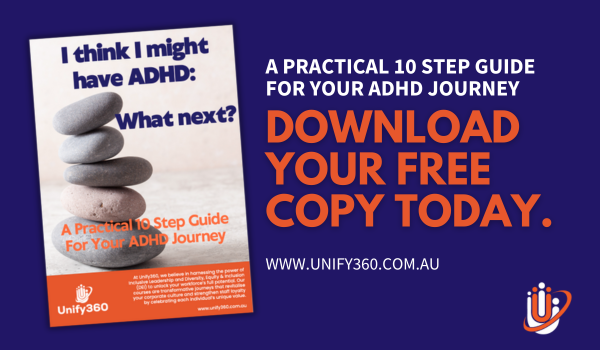For many women with Attention Deficit Hyperactivity Disorder (ADHD), the journey to a diagnosis is long, frustrating, and often filled with confusion. Unlike boys, who are more frequently diagnosed in childhood, women with ADHD often go undetected for years, quietly struggling with symptoms that they work hard to conceal. This process of “masking” – hiding or suppressing symptoms to fit societal expectations – can be exhausting and lead to significant emotional and psychological strain.
Adding to this challenge is the frequent misdiagnosis of women with ADHD. Because many of the symptoms overlap with other mental health conditions like anxiety, depression, and mood disorders, it’s common for women to receive treatment for the wrong condition, further delaying a proper diagnosis and the support they need.
What is Masking?
Masking is a coping mechanism where individuals with ADHD or other neurodiverse conditions consciously or unconsciously hide their characteristics to fit into a neurotypical world. For women, societal pressures and gender expectations often intensify the need to mask their ADHD behaviours.
From an early age, girls are expected to be organised, attentive, and compliant. These expectations put pressure on girls with ADHD to behave in ways that don’t come naturally to them. Instead of exhibiting the hyperactivity or impulsiveness often seen in boys, girls with ADHD might focus on being “people pleasers,” working extra hard to stay quiet, organised, and out of trouble. This can mean pushing themselves to the point of exhaustion just to appear “normal,” which often goes unnoticed by parents, teachers, and even healthcare professionals.
As women grow older, the need to mask their symptoms continues. They may develop complex systems to stay on top of work, relationships, and household responsibilities, constantly battling feelings of inadequacy and overwhelm beneath the surface.
The Emotional Toll of Masking
While masking can help women fit in and avoid being judged or labelled, it comes at a high cost. Constantly hiding ADHD symptoms can lead to:
- Exhaustion and BurnoutThe mental and emotional energy required to mask ADHD symptoms is draining. Over time, this constant effort can lead to burnout, as women push themselves to meet expectations they can’t naturally sustain.
- Low Self-EsteemMany women with ADHD struggle with feelings of inadequacy. They see their peers managing tasks with ease while they secretly grapple with disorganisation, procrastination, or distractibility. Without understanding the root cause of these struggles, women often blame themselves, which can erode their self-confidence over time.
- Anxiety and DepressionThe pressure to mask ADHD symptoms and fit in can lead to heightened levels of anxiety. Women with ADHD may worry about being “found out” or fear that they’re not good enough, causing chronic stress. Over time, this can contribute to anxiety and depression, as they internalise their struggles rather than seek help.
The Misdiagnosis Problem
The overlapping symptoms between ADHD, anxiety, and depression are one of the main reasons women often receive the wrong diagnosis. In fact, many women are first diagnosed with anxiety or depression, and while these conditions may be present, they often fail to explain the full range of struggles experienced by women with ADHD.
Why Misdiagnosis Happens
- Overlapping SymptomsADHD shares several symptoms with anxiety and depression, such as restlessness, difficulty concentrating, and emotional dysregulation. Without a full understanding of ADHD, healthcare professionals may focus on treating these surface-level symptoms without identifying ADHD as the underlying issue.
- Gender Bias in DiagnosisHistorically, ADHD has been considered a “boys’ disorder,” primarily because boys tend to exhibit more obvious hyperactive behaviours. Girls and women with ADHD, who may display inattentiveness or internalised struggles, often go unnoticed, or their symptoms are attributed to mood disorders or stress.
- Hormonal ChangesFor many women, hormonal changes during puberty, pregnancy, or menopause can worsen ADHD symptoms. However, these periods are often dismissed as normal “hormonal fluctuations,” rather than seen as red flags for underlying ADHD.
- Mental Health StigmaMental health conditions like anxiety and depression are more socially accepted diagnoses, meaning they are more readily recognised and treated. ADHD in women, on the other hand, is still poorly understood and frequently misrepresented. As a result, many women are treated for the wrong condition for years.

The Cost of Misdiagnosis
Living with undiagnosed or misdiagnosed ADHD can lead to significant long-term consequences. Without proper treatment, women with ADHD can struggle with work performance, relationships, and self-esteem. The incorrect treatment for anxiety or depression might alleviate some symptoms, but the core issues related to ADHD—such as executive functioning deficits, attention difficulties, and emotional regulation problems—will persist.
In the workplace, undiagnosed ADHD can result in frequent job changes, difficulties managing deadlines, or feeling like they’re constantly playing catch-up. In personal relationships, women with ADHD may experience difficulties with organisation, communication, or managing household responsibilities, which can strain partnerships or family life.
The internalised feelings of inadequacy, often reinforced by years of masking and misdiagnosis, can lead to a sense of “failure” that is deeply ingrained and difficult to overcome. Many women report feeling “behind” in life, constantly comparing themselves to others and wondering why they struggle with tasks that seem simple for their peers.
The Power of Proper Diagnosis
For women who have spent years masking their symptoms and being misdiagnosed, finally receiving an ADHD diagnosis can be life-changing. It offers a sense of validation and relief—proof that their struggles are not a personal failing but the result of an underlying condition that can be managed with the right support.
A proper diagnosis opens the door to treatment options that can make a real difference, such as:
- Medication: ADHD medication can help improve focus, impulse control, and executive functioning, making it easier to manage daily tasks.
- Therapy: Cognitive behavioural therapy (CBT) and other therapeutic approaches can help women with ADHD develop practical strategies for managing time, organisation, and emotional regulation.
- Lifestyle Changes: Understanding ADHD allows women to make informed changes to their daily routines, such as incorporating exercise, mindfulness, or new organisational tools into their lives.
Moving Forward with Understanding
It’s crucial for healthcare professionals, educators, and society as a whole to recognise that ADHD affects women differently and that masking can hide many of the symptoms. Women deserve the chance to be properly diagnosed and treated, rather than being misdiagnosed with anxiety or depression.
If you suspect that you or someone you know may be struggling with ADHD, it’s never too late to seek help. A proper diagnosis can provide clarity and open the door to effective treatment and support.
At Unify360, we’re committed to raising awareness about ADHD and helping organisations create supportive environments for neurodiverse individuals. Get in touch with us today to learn how our in-house training programs can help your team understand and support employees with ADHD, creating a more inclusive and empowering workplace.

